
2020: Experiences of the First
When it comes to the human role in today’s environment, we usually come across negative feedback only. Man is always blamed for their ecological footprint, an enormous amount of waste disposal, and destructive behavior to mother nature. Millions of insects and pollinators are endangered – if not already extinct – due to modern agriculture activities.
The global population is increasing rapidly, everybody has their basic needs of food, entertainment, and reproduction, therefore, they subordinate everything to fulfill their own needs. Mainly people with pessimistic tendencies would enjoy hearing that, but we aren’t such.
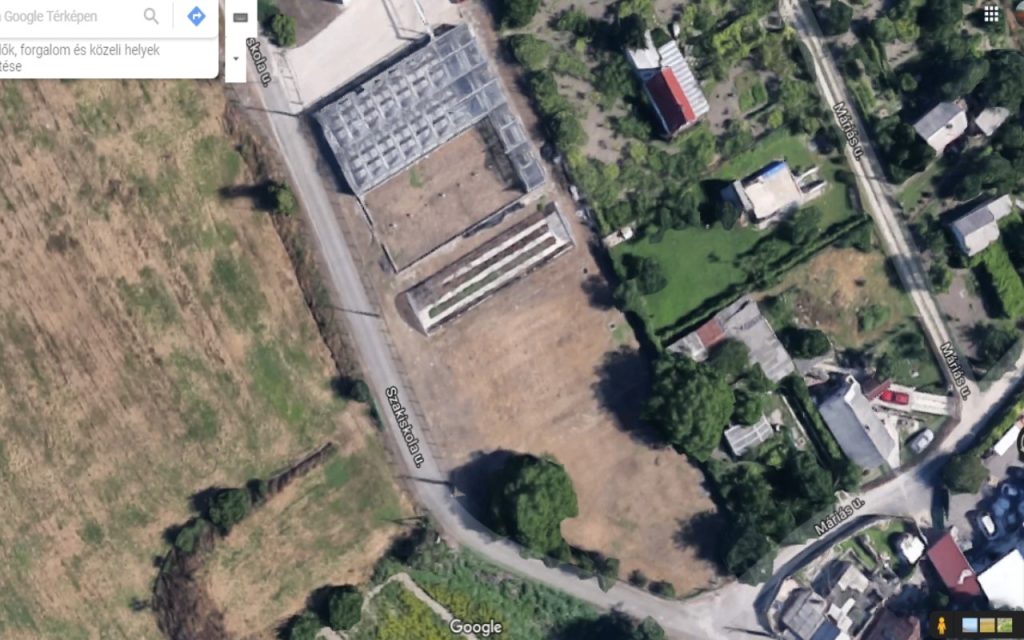
Thanks to the location of our office building in suburban Budapest, we have been able to survive the pandemic lockdown period, not in a cubicle office surrounded by urbanization, but in a biophilic environment with lush greenery all around.
Luckily, the work here went well as usual. We served our customers, developed products and tried to improve our working conditions at work. It was such a relief walking out to the garden – the scent of spring almond blossoms made us forget the craziness going on in the world. Having a permaculture garden, forest, and nature nearby is calming.
There is an old saying that goes like “Keep the pets according to their nature”. If we give it more thought, it does apply to man as well – keep man according to their nature. Surprisingly, this is what permaculture design is all about. Permaculture revolves around man, creating the right environment that provides us with better food, contentment, and a sense of community. We can create a livable world around us in which we survive, thrive, and find harmony. The story is all about our footprint, how big a positive footprint we humans can leave on this planet.
At the beginning of the Grapoila permaculture project, we mentioned our goal is to create a harmony of three principles: “care for people, care for nature, and share our goods fairly”. We aim to set an example of how a medium-sized company can have a positive impact on the environment. Let’s see what we accomplished last year.
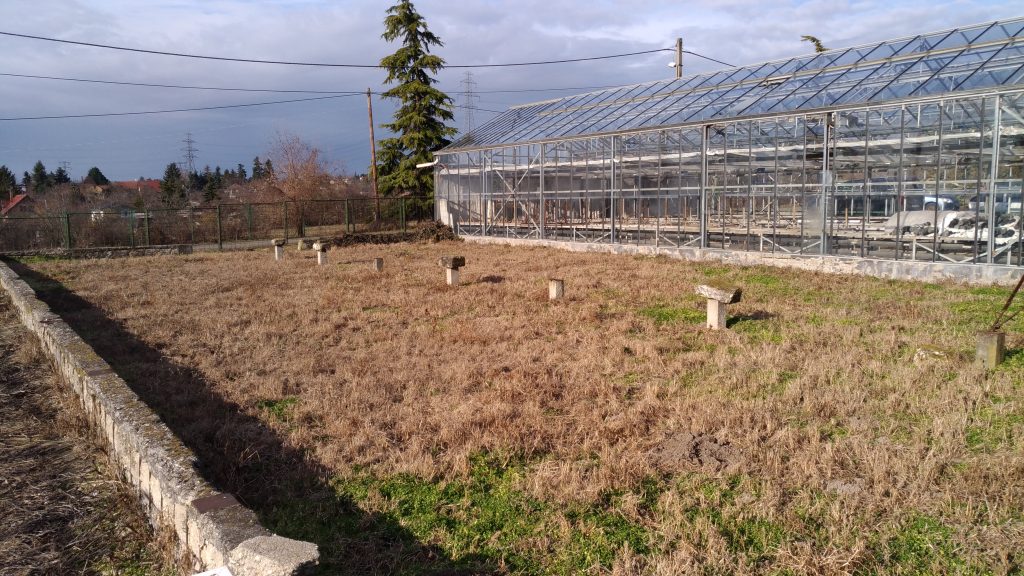
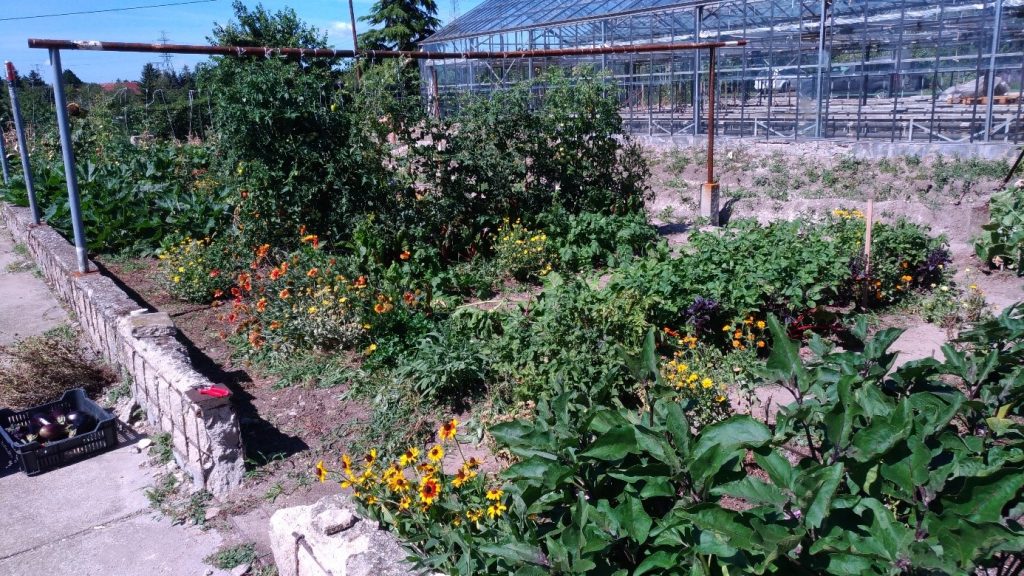
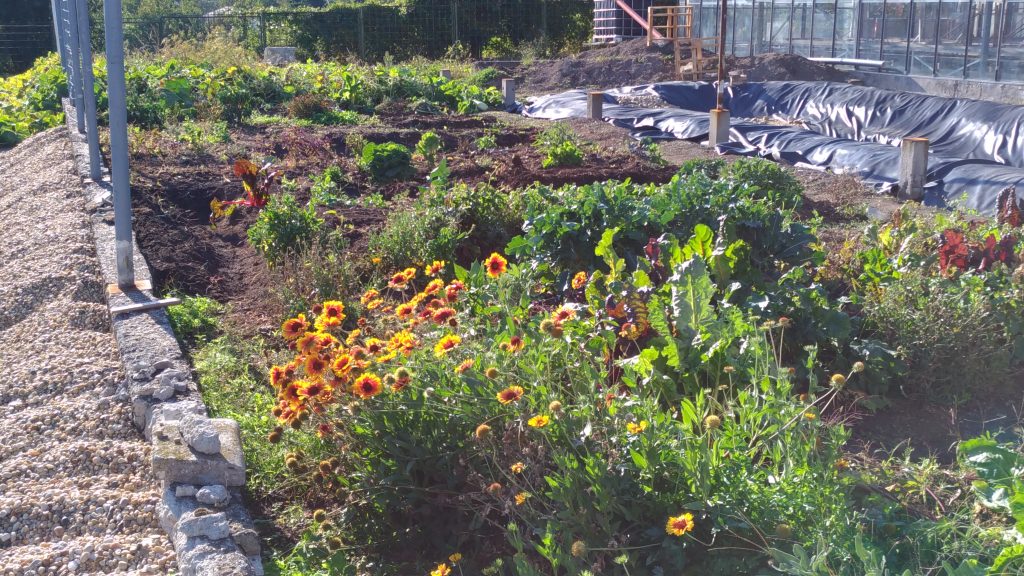
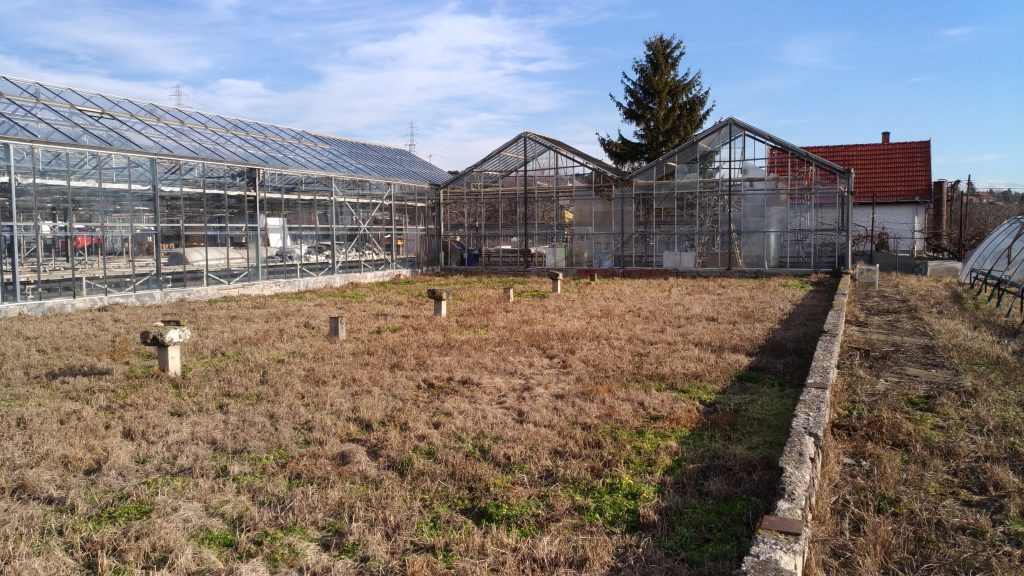
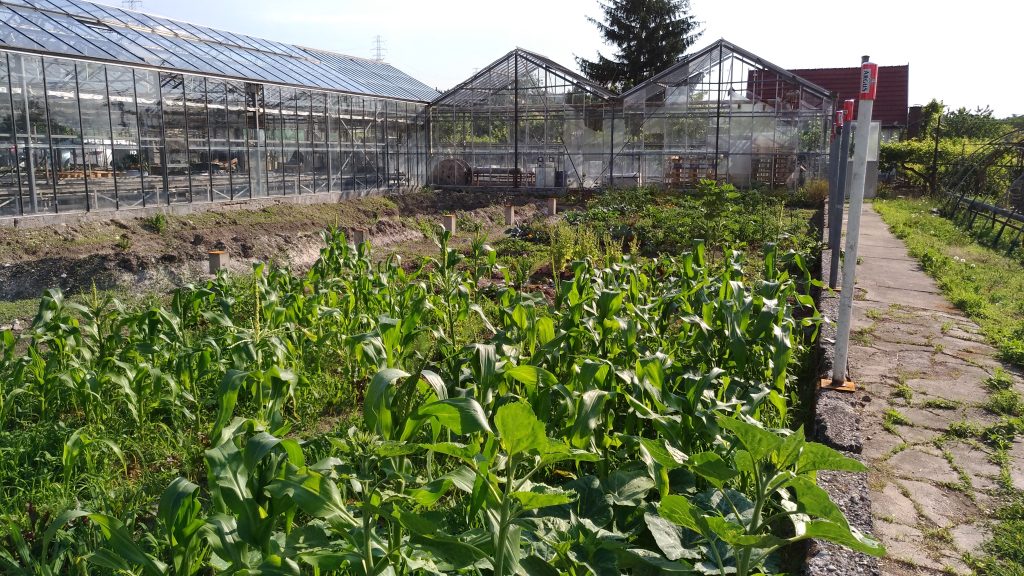
The year 2020 wasn’t just a year of mere observation, that was 2019, but in 2020 we started our intervention and experimenting. We were curious about what our land has to offer, with little financial investment, little energy input, and using almost only manual tools – except for digging the pond, but that’s a long-term story that will pay off later on ecologically. We saw how plants feel good here, which are more water demanding, and which can withstand the hot summer wind or even the two-month spring drought.
In spring 2020, we created no-till garden beds and experimented mulching with mushroom compost, despite the two-month lack of rain, the soil retained its moisture with minimal irrigation. Most of our herbs, spices, and vegetables sprouted to form our seedlings. Moreover, by the end of summer 2020, as a result of seed saving, we managed to do the autumn sowing using our own seeds. It is even likely we’ll have too many seedlings for the following season so that we could accomplish the third permaculture principle too.
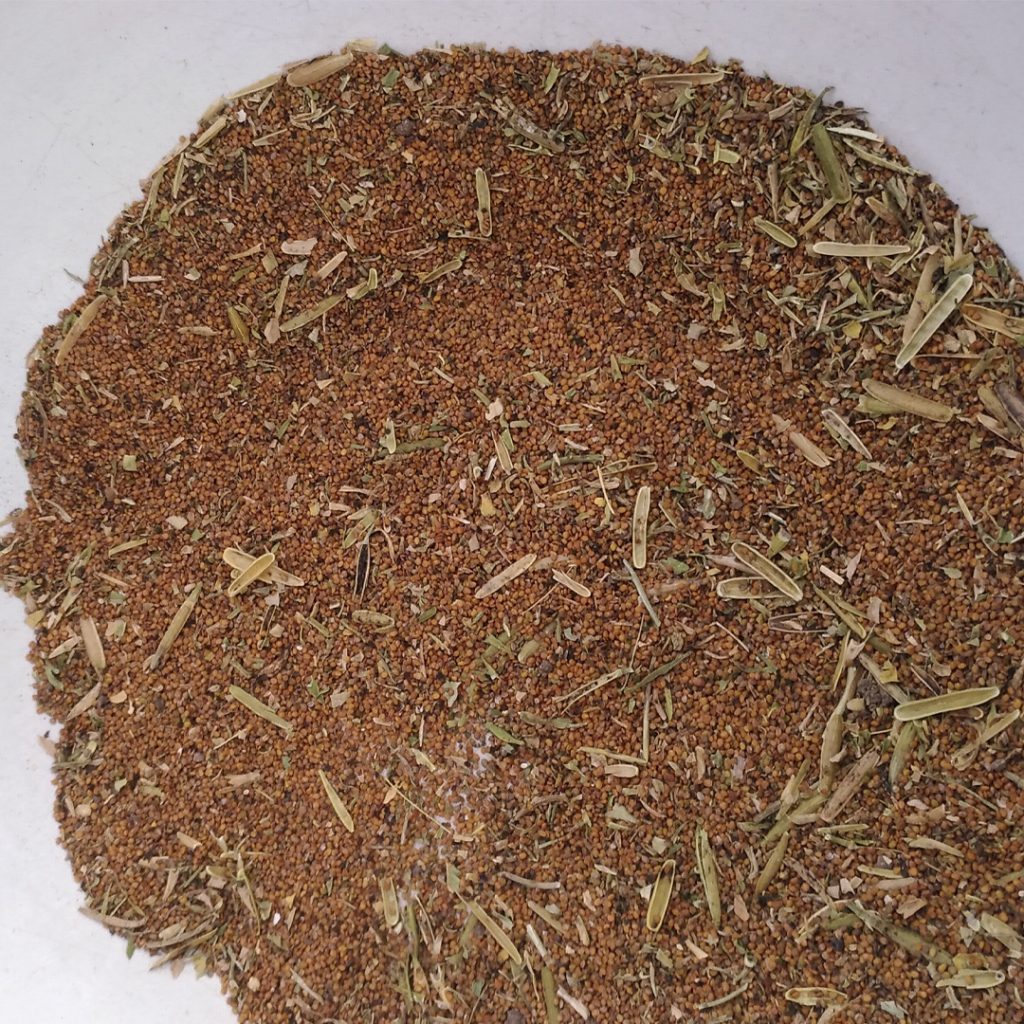
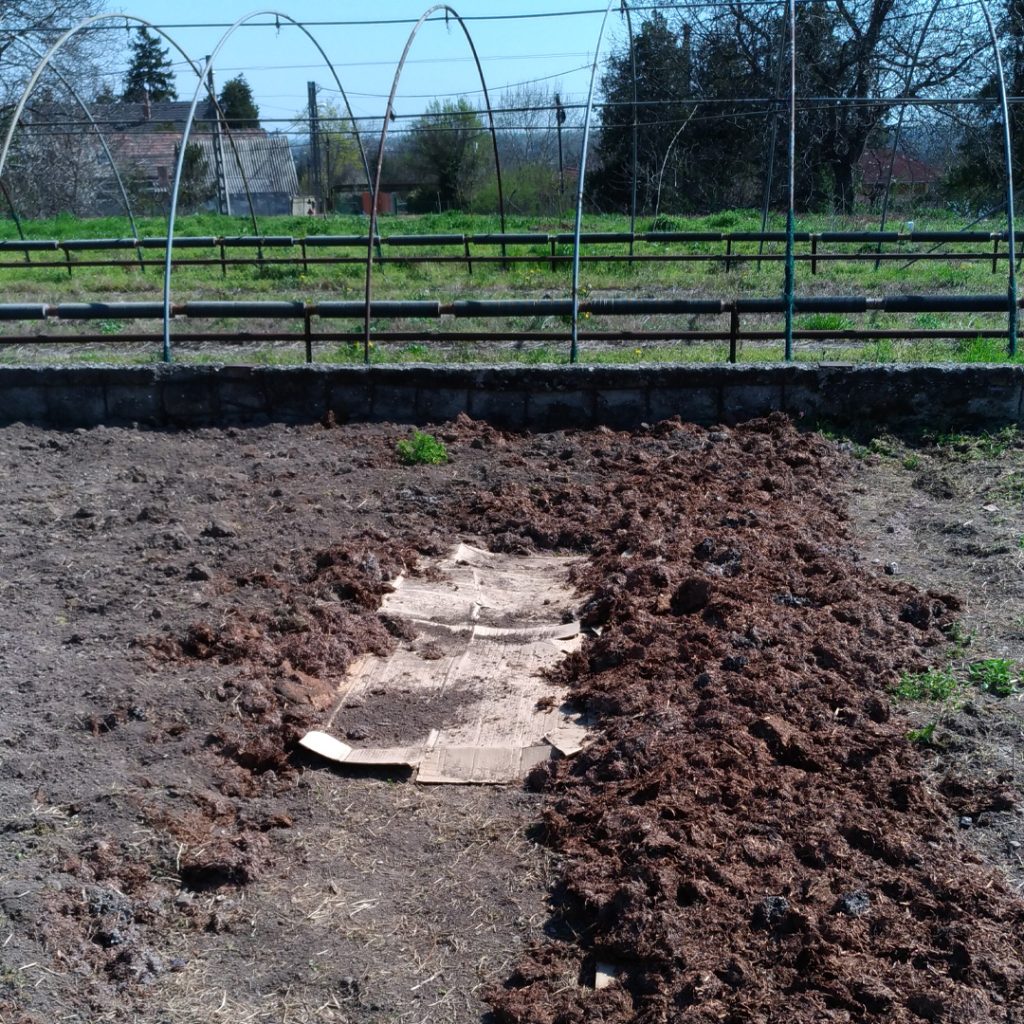
We added hundreds of worms into the compost bin to help break down our kitchen food leftovers and coffee ground. Roughly 150 – 200 kgs of household organic waste was processed into earthworm compost in a single year. We also tried thermo-composting which worked surprisingly well in the spring and fall. During hot summer, we will pay more attention to humidity levels for more efficiency.
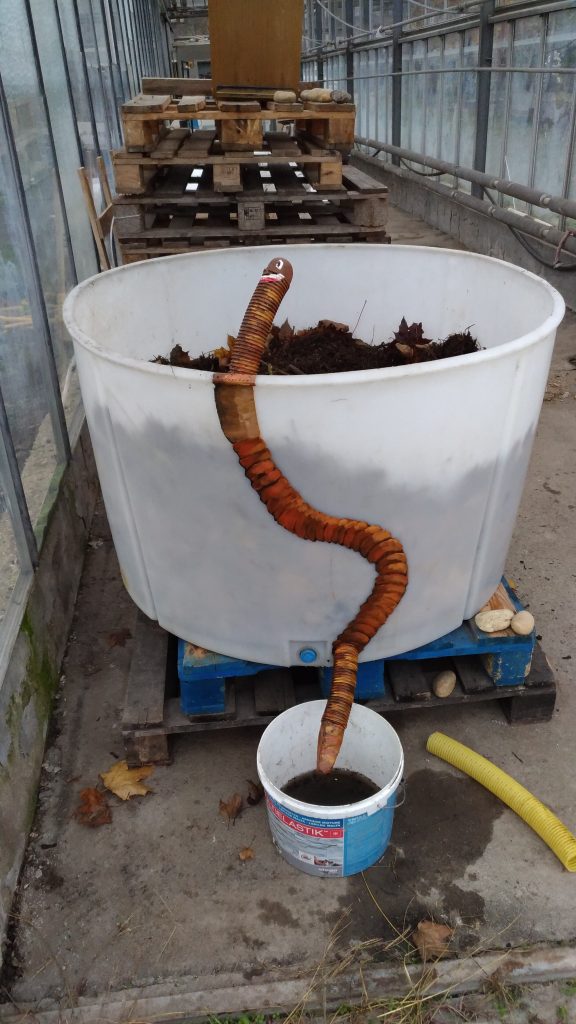
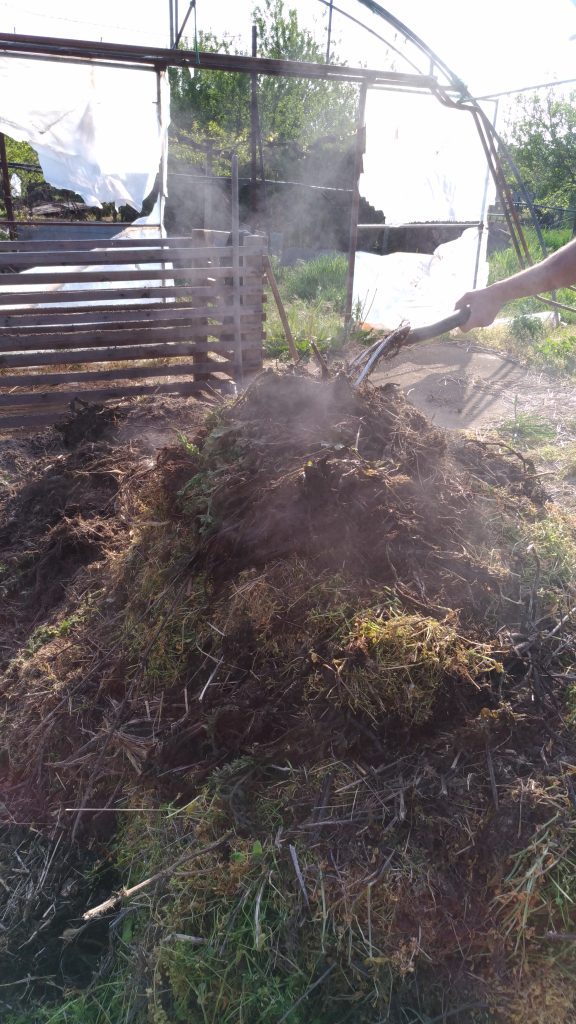
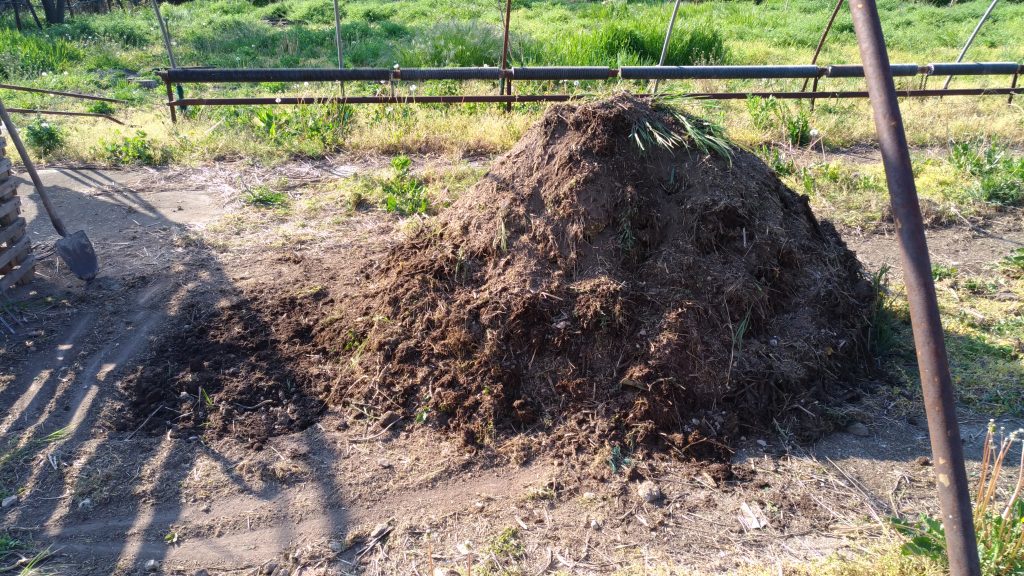
We improved our water supply, rainwater is already being diverted from the greenhouse to a 32 m3 pond. We created ditches and special trenches to catch more water. The edges of the pond were full in the spring, followed by plants and fish in the second half of summer 2020.
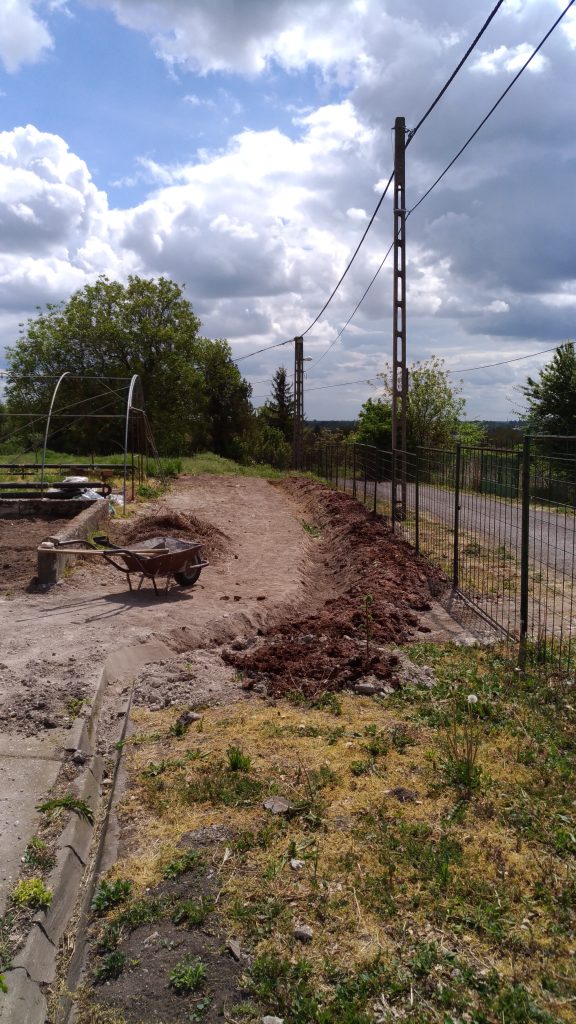
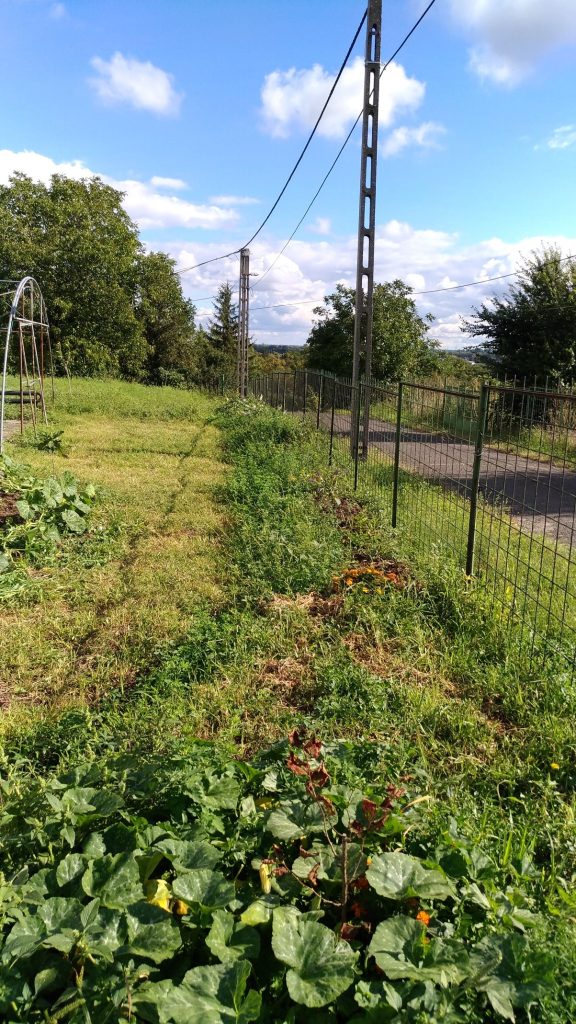
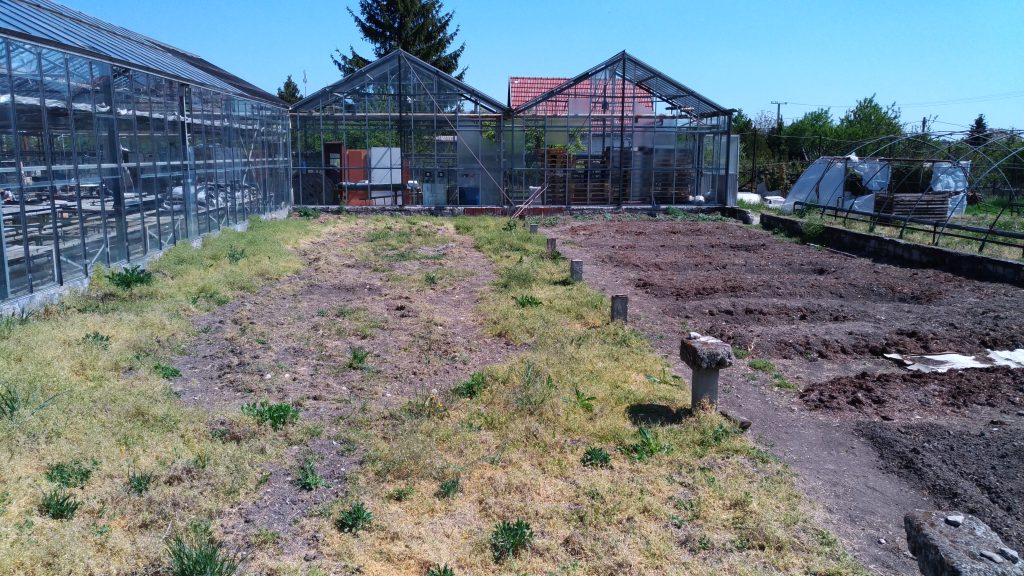
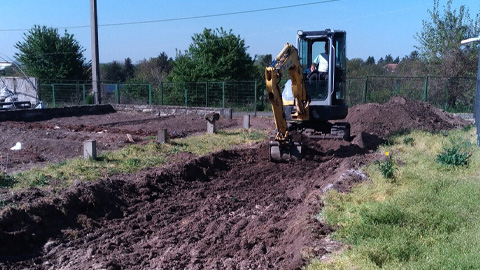
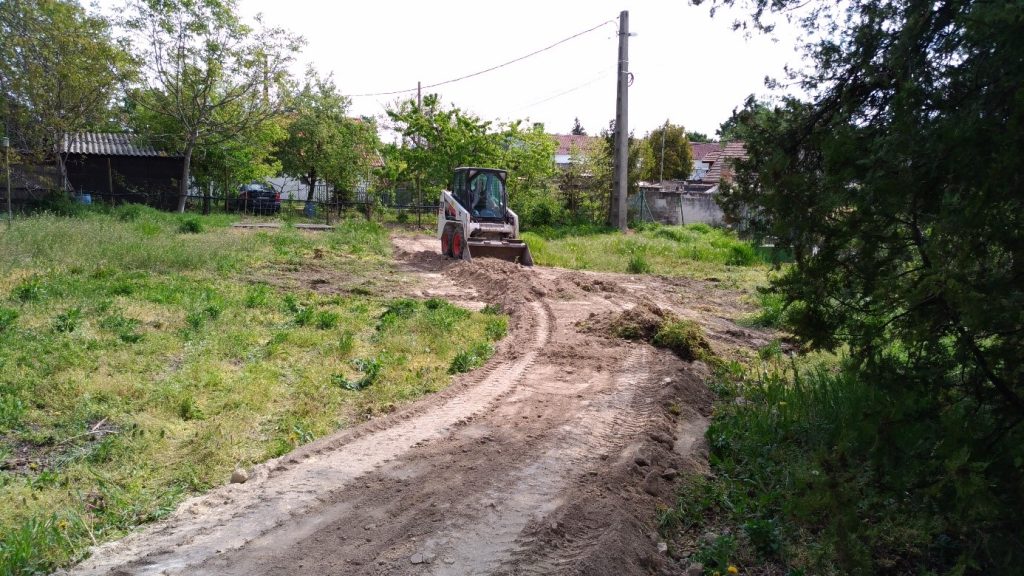
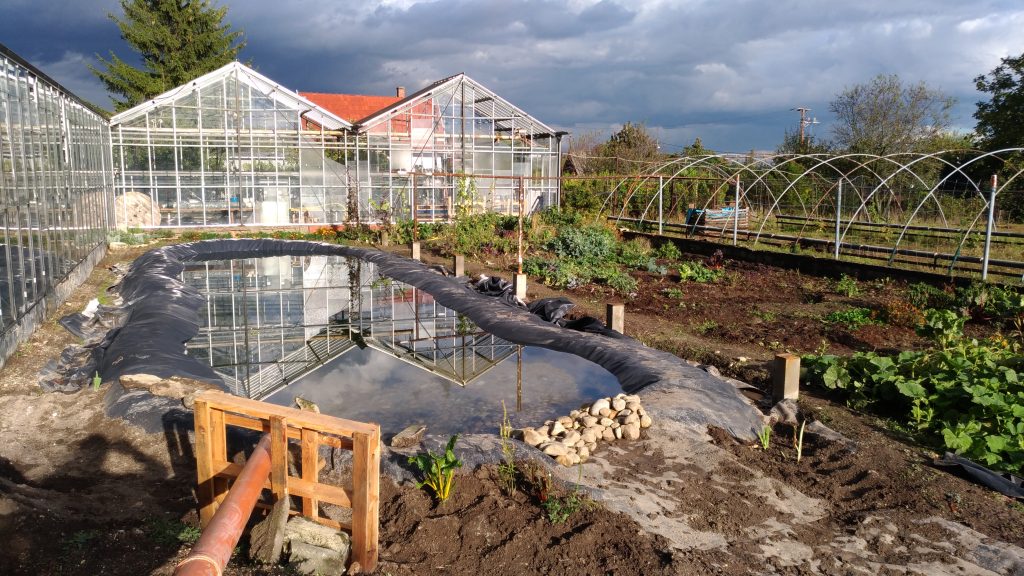
We sowed tons of plants, even ones that didn’t exceed 10-15 cm in size, and showed symptoms of nutrient deficiency because they hadn’t been transplanted from their small pots for years. By the end of the summer, these summer organ bushes had already exceeded 50 centimeters of height, and some 43 woody species, 20 kinds of herbs and spices, and many vegetables were also planted.
Once or twice a week we harvested these vegetables and herbs (chives, mint, arugula, tomatoes, cucumbers, zucchini, radish, chard, kohlrabi) from the kitchen garden. Sweet potatoes grew very nicely, we want to plant even more the following season. The first species of beehive hedge have hardened, the rest will thrive later on. We sowed soil improvers e.g. alfalfa, whitefish, mustard, phacelia, earthworm, but many species were already present in the area, they just had to be supported with their work.
In the following season, we planned to carry out continuous annual soil quality monitoring to see how far biological activities have gone in the soil, how it affects the nutrient bioavailability, thereby expanding our composting experience. We also had a plan to triple the amount of rainwater harvested by using two huge tanks located on the highest point of the property.
We were motivated in the following season to expand our vegetable growing, change the planting structure a little bit, and maximize our plantation density. Our plans included calculating returns so that we can support efficiency with numbers. The basic elements of the forest garden, the little tree saplings are slowly growing in place, part of the shrub layer can also come from the perennials and annual herbs.
Our plans include building a café “pensive” corner by the lake, surrounded by herbs. We dreamed of a place to cook under the big walnut tree. The pallet benches were already completed last year.
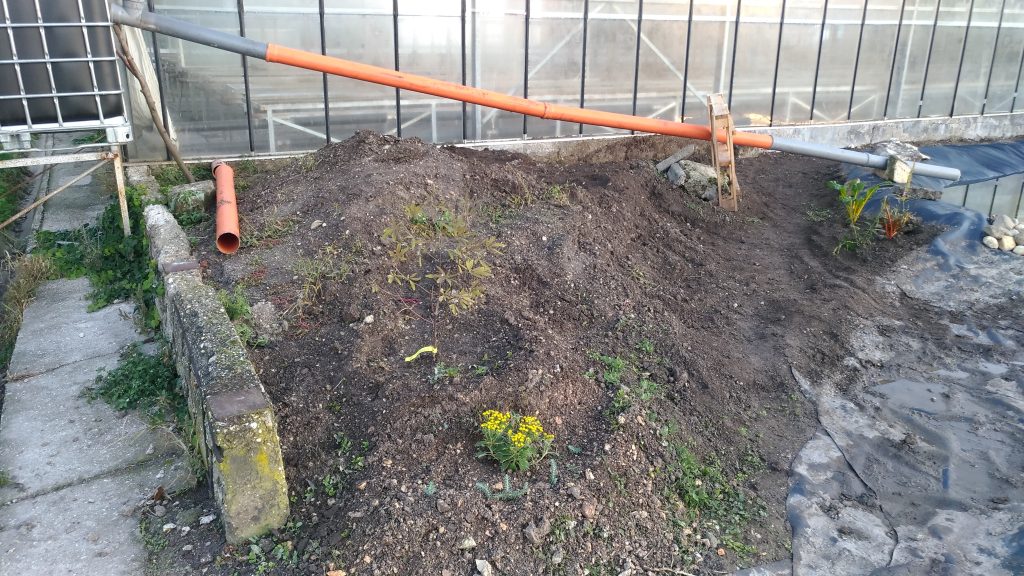
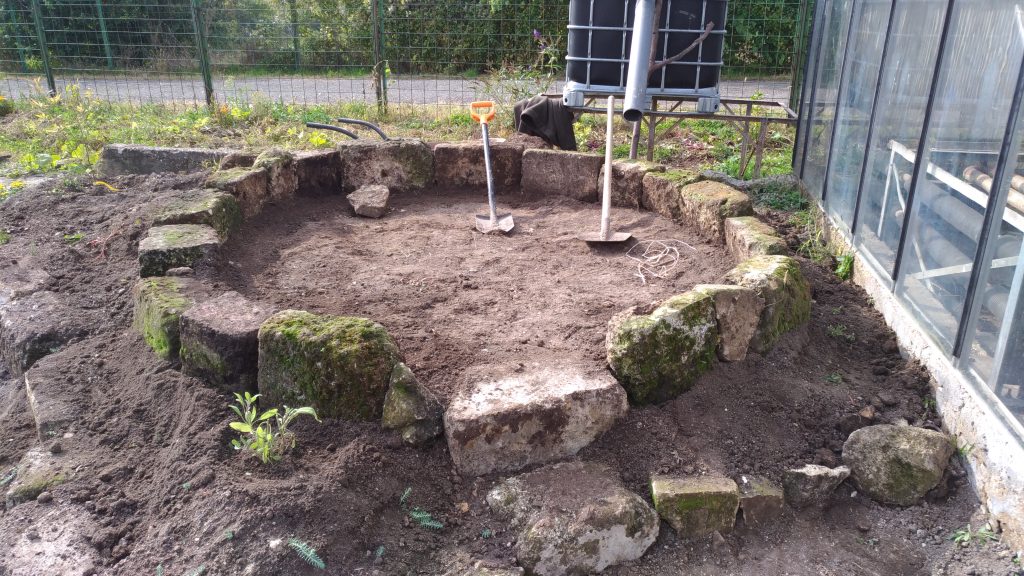
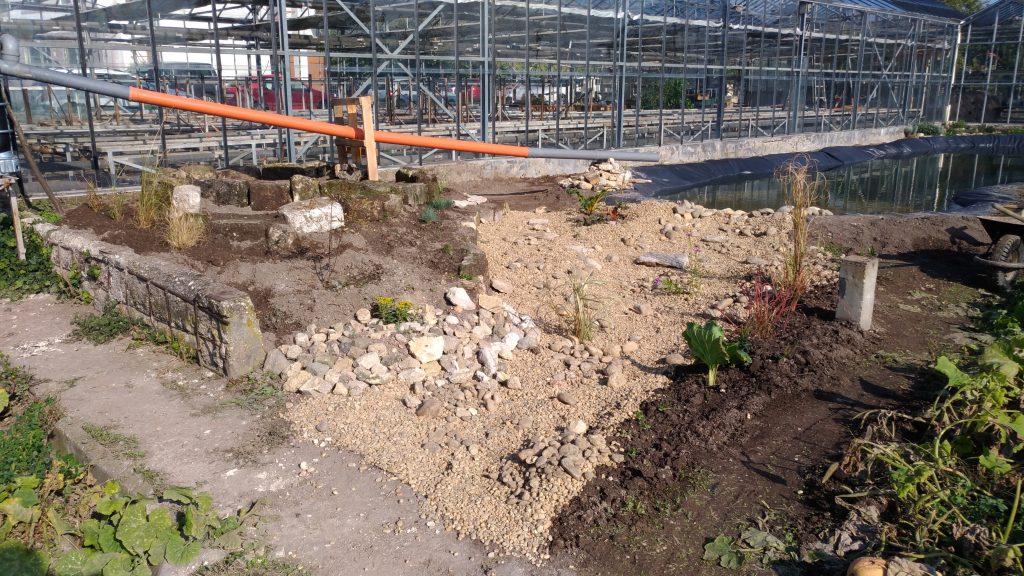
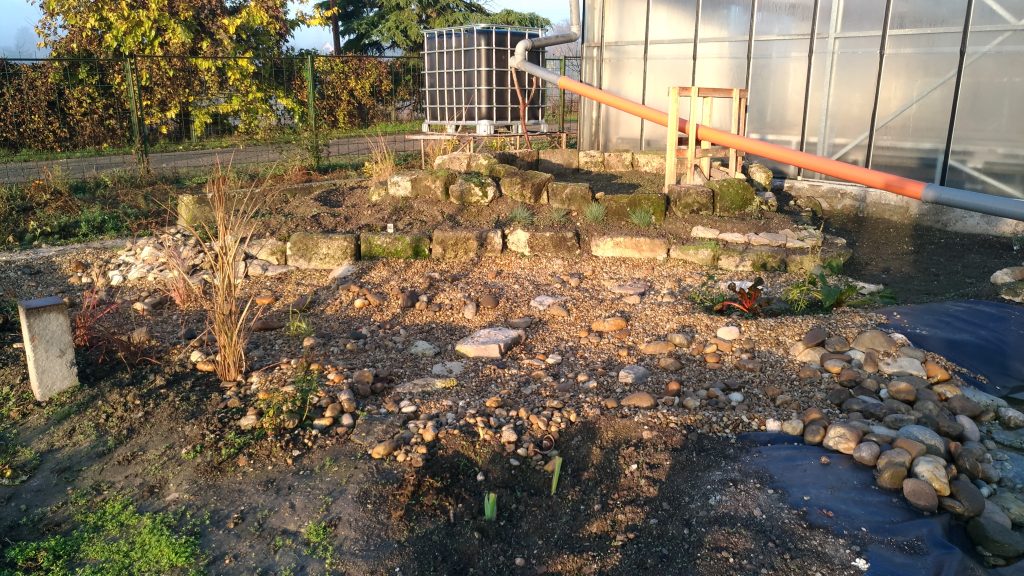
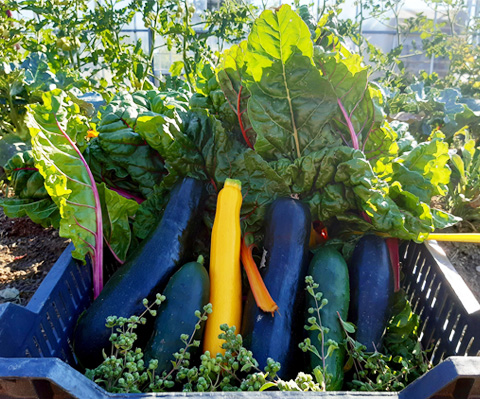
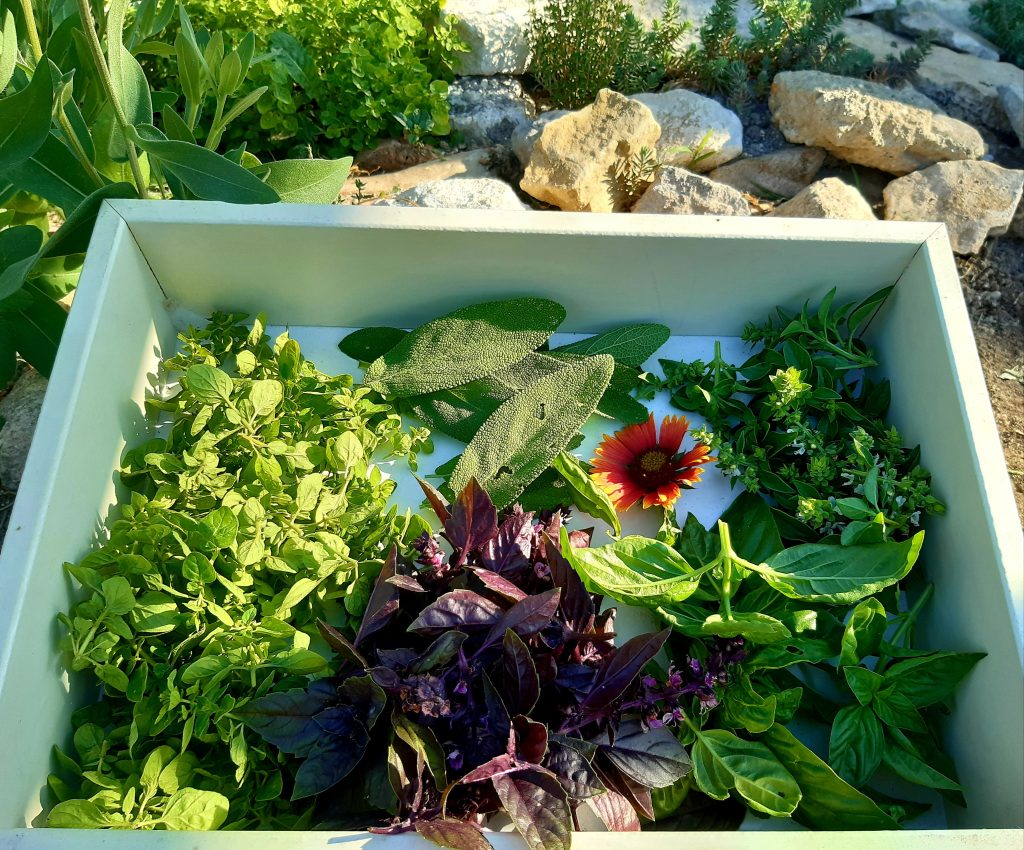
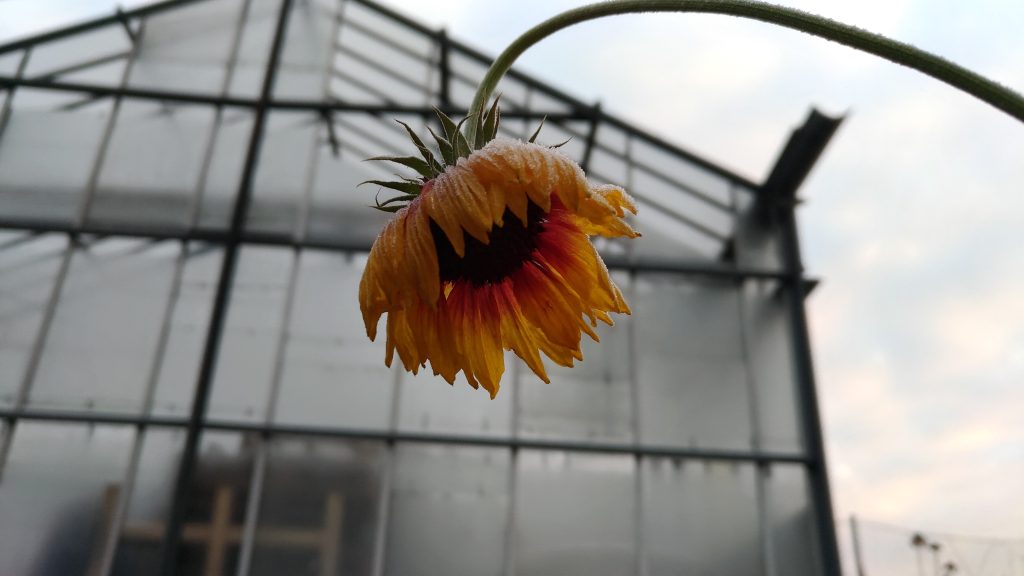
Thank you for sharing the journey with us in 2020. We hope you are as excited as we are for the coming one. If you’re curious to continue, find our Grapoila Permaculture Facebook page where you can follow the transformation. We hope you also got in the mood for organic gardening too!
